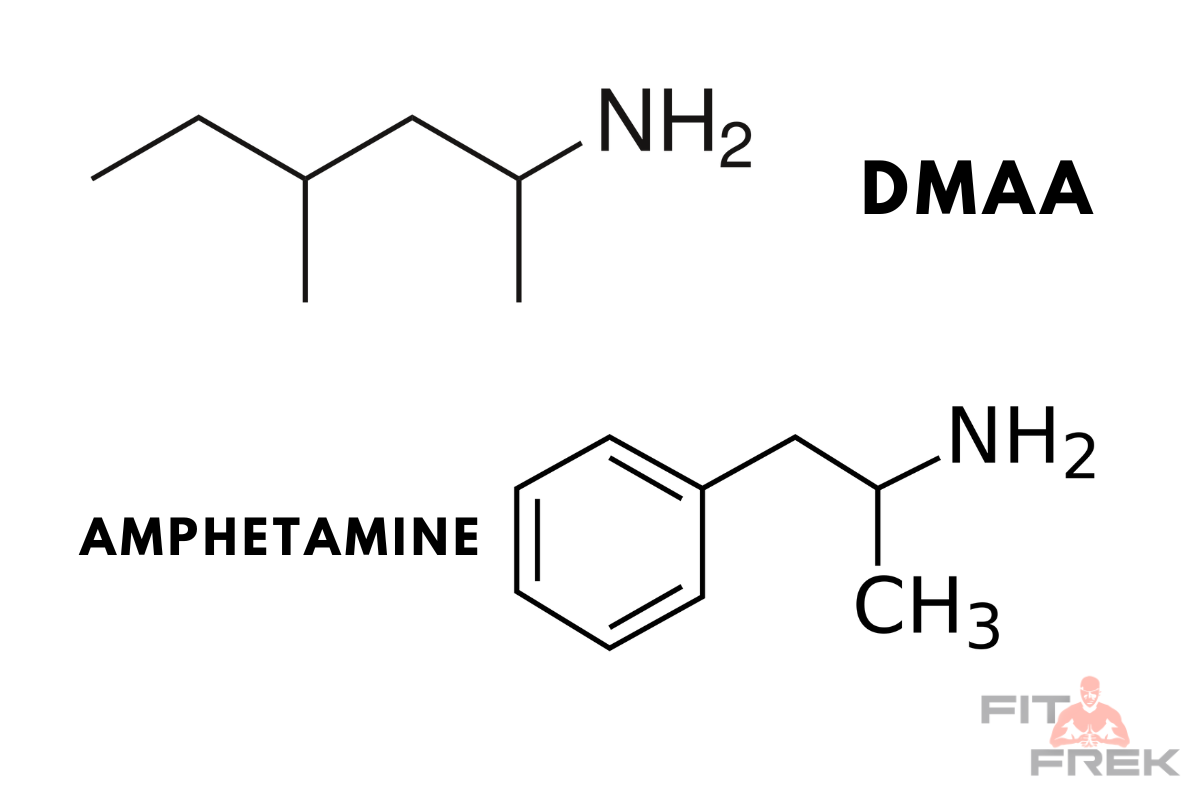
DMAA, or 1,3-dimethylamylamine, is a synthetic stimulant that has been a popular ingredient in pre-workout supplements and weight loss pills.
However, its use has been associated with serious health risks, leading to its ban in several countries.
Despite this, it's still found in some products, and its presence can lead to positive results in drug tests.
This article will explore the science behind DMAA, its effects, and why it might appear in drug tests.
DMAA can potentially trigger a false positive on drug tests due to its structural similarity to amphetamines.
This often leads to confusion in initial screenings, although more specific tests can correctly identify DMAA.

Yes, DMAA can potentially cause a positive result on a drug test.
This stimulant, found in some pre-workout and weight loss supplements, is known for boosting energy and performance but is controversial due to health risks and being banned in many sports.
DMAA's chemical structure resembles that of amphetamines, which is why it might test positive on drug tests.
This similarity can lead to false positives in initial screenings, as the tests may not distinguish between DMAA and banned amphetamines.
DMAA is structurally similar to amphetamines but lacks the characteristic ring structure.

This structural similarity is one of the reasons why DMAA could potentially result in a positive drug test.
One study showed that DMAA was the cause of 92.3% of the false positive results in amphetamine screening kits used by the United States Department of Defense drug screening laboratories.
The physiological effects of DMAA are also similar to those of amphetamines.
DMAA is a sympathomimetic compound that mimics the effects of epinephrine, norepinephrine, and dopamine – neurotransmitters that amphetamines also affect.
These neurotransmitters are involved in the body's "fight or flight" response and can increase heart rate, blood pressure, and blood glucose levels.
They also play a role in attention and focus, which is why amphetamines are often used to treat attention deficit hyperactivity disorder (ADHD).
Given its structural and functional similarities to amphetamines, it's unsurprising that DMAA can appear on drug tests.
However, it's important to note that standard drug tests are not explicitly designed to detect DMAA.
Instead, they are designed to detect amphetamines and other similar substances.
Because of its structural similarity to these substances, DMAA can trigger a positive result.
However, more sophisticated drug testing methods, such as gas chromatography-mass spectrometry (GC/MS), can differentiate between DMAA and amphetamines.
So, while a standard drug test may return a false positive for amphetamines after DMAA use, a follow-up test with GC/MS should be able to identify the substance as DMAA correctly.
In general, standard drug tests do not specifically test for DMAA.
These tests typically screen for amphetamines, cocaine, marijuana, opioids, and other commonly abused drugs.
However, there are specialized tests that can detect DMAA, which may be used by sports organizations or other entities that have banned this substance.
It's important to note that while DMAA itself may not cause a positive result on a standard drug test, it can potentially lead to a false positive for amphetamines due to its chemical structure.
This is because DMAA is a derivative of amphetamine, and some drug tests may not be able to distinguish between the two substances.
However, further testing can usually differentiate between a false positive caused by DMAA and actual amphetamine use.
DMAA has been banned by many sports organizations, including the World Anti-Doping Agency (WADA) and the National Collegiate Athletic Association (NCAA).
Athletes subject to drug testing by these organizations should avoid using DMAA products, as it can lead to a positive test result and potential sanctions.
In a study conducted on rats, DMAA was found to be rapidly absorbed and equally rapidly eliminated, with an elimination half-life of around 8.45 hours.
This means that DMAA could be detectable in urine for up to several days after use.
However, the exact detection window can vary depending on factors such as the individual's metabolism, the amount of DMAA taken, and the sensitivity of the test used.
In the context of employment drug testing, it's unlikely that DMAA use would cause a positive result.
This is because most employers use standard 5-panel or 10-panel drug tests, which do not specifically test for DMAA.
However, as mentioned earlier, DMAA could cause a false positive for amphetamines on these tests.
If you're subject to employment drug testing and are considering using a product that contains DMAA.
Discussing this with your employer or the testing entity beforehand may be a good idea.
They can provide information about the specific substances their tests screen for and whether DMAA could potentially cause a problem.
DMAA was originally developed by the pharmaceutical company Eli Lilly in the 1940s as a nasal decongestant.
It was marketed under the brand name Forthane for this purpose.
However, it fell out of use in the medical community and was largely forgotten until the early 2000s, when it was reintroduced as a dietary supplement ingredient.
The reintroduction of DMAA into the market was controversial.
It was often marketed as a natural substance derived from geranium plants, but this claim has been widely disputed.
In fact, multiple scientific studies have found no trace of DMAA in geranium plants or their essential oils.
DMAA is a powerful central nervous system stimulant. It works by increasing the release of norepinephrine, a neurotransmitter that plays a role in attention, alertness, and response times.
This is why DMAA is often compared to other stimulants like caffeine and amphetamines.
However, the exact mechanism of action of DMAA is not fully understood.
Some research suggests it may also act as a vasoconstrictor, narrowing blood vessels and increasing blood pressure.
This could explain some of the side effects associated with DMAA use, such as increased heart rate and blood pressure.
The use of DMAA has been associated with several potential side effects.
These include increased heart rate and blood pressure, shortness of breath, chest pain, and even more serious conditions such as heart attacks and seizures.
In addition to these physical side effects, DMAA can also have mental and emotional side effects.
Some users have reported feeling anxious, jittery, or restless after taking DMAA.
In rare cases, DMAA use has been linked to severe psychiatric side effects, including mania and psychosis.
It's important to note that these side effects can be exacerbated when DMAA is taken in high doses or combined with other stimulants like caffeine.
This is why it's crucial to use DMAA responsibly, if at all, and always to follow the recommended dosage instructions.
If you're curious and want to dive deeper into the world of DMAA, we've got a bunch of articles that you might find interesting:
Can DMAA cause a false positive on a drug test?
Yes, DMAA can cause a false positive on initial drug tests due to its structural similarity to amphetamines. However, it should not test positive on a confirmatory test.
Is DMAA illegal?
The legal status of DMAA varies by country. In the United States, the Food and Drug Administration (FDA) has issued warnings about the safety of DMAA and has taken action to remove dietary supplements containing DMAA from the market.
What are the potential side effects of DMAA?
Potential side effects of DMAA can include elevated blood pressure, shortness of breath, tightening in the chest, and in severe cases, heart attack.
Are there any safe alternatives to DMAA?
Yes, substances like caffeine, theacrine, and dynamine offer similar benefits in terms of increased energy and focus and are generally considered safer options.
In conclusion, while DMAA is not typically tested for in standard drug tests, it can potentially cause a false positive for amphetamines due to its chemical structure.
Suppose you're subject to drug testing by a sports organization or employer.
In that case, it's essential to be aware of this and avoid using DMAA products if your organization bans it.
Useful Links
 About FitFrek
About FitFrekFitFrek operates as an independent platform, offering comprehensive workouts, programs, routines, guides, and unbiased reviews to accelerate your progress. We pride ourselves on our honesty, delivering straightforward and candid insights. FitFrek does not offer medical advice, diagnosis, or treatment services.